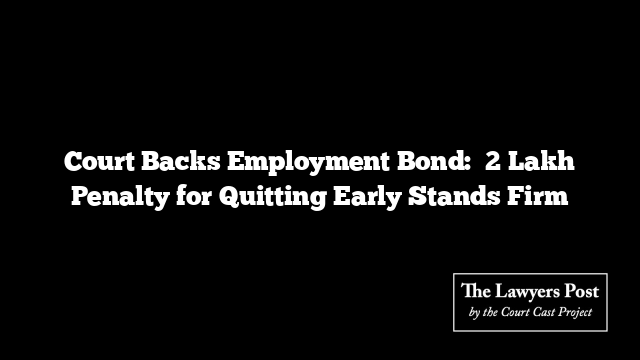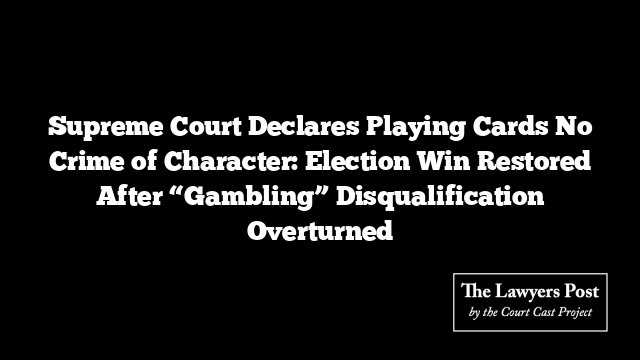In a decisive ruling, the Supreme Court has reinforced the legitimacy of employment bonds that require employees to serve a minimum period, validating a ₹2 lakh penalty imposed on a public sector bank employee who resigned prematurely.
The court clarified that such clauses, demanding a fixed tenure before resignation, do not violate the prohibition on “restraint of trade” under Section 27 of the Indian Contract Act. The key distinction: these bonds regulate conduct during employment rather than restricting future job opportunities, placing them outside the scope of illegal restraints.
Highlighting the competitive realities public sector banks face today, the judgment underscored the importance of retaining skilled professionals to maintain operational efficiency and reduce costly turnover. The Court recognized the evolving landscape where public institutions must compete with private entities, pushing them to adopt measures that stabilize their workforce and protect managerial expertise.
Rejecting claims that these clauses are unfair or oppressive, the Supreme Court pointed out that premature resignations force institutions into prolonged and expensive hiring processes—burdening both the organization and public resources. The ₹2 lakh penalty was deemed a reasonable liquidated damages figure rather than an excessive fine.
This ruling overturns an earlier Karnataka High Court decision which had struck down the bond clause as an unlawful restraint of trade, sending a clear signal that employment contracts with minimum service requirements are enforceable and essential tools for public sector employers.
By upholding this clause, the Court affirmed that financial penalties tied to early exit serve legitimate business interests and do not contravene public policy—setting a precedent that strengthens institutional efforts to retain talent without infringing on workers’ rights to seek new employment after fulfilling agreed-upon terms.
The controversy arose when an officer of Vijaya Bank, who signed a bond agreeing to serve three years or pay ₹2 lakhs on early resignation, quit before completing his tenure to join another bank. While the High Court had invalidated the clause, the Supreme Court reinstated it, emphasizing the difference between restricting employment outright and enforcing contract terms designed to reduce costly employee churn.





